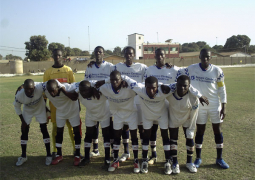The challenges are like a hydra-headed monster: as one challenge is tackled another one springs up, leaving experts rather bewildered as to how to go about the Africa Question. The upshot is that most people have already given up on the continent as a lost cause. This explains why there is so much brain-drain and why illegal migration is now the norm among African youth. But Africans must never despair.
The first step, surely, is to have faith in ourselves, in our products and in our values. In some parlance, this is termed as mental emancipation. If we believe that we are inferior, we will act inferior. If we think in a positive fashion, then we can turn the continent around.
We should as a matter of necessity and urgency clear our minds of defeatist sentiments like “nothing works in Africa”. Everything and anything can work on the continent if we put our minds to it and exert ourselves to put our positive and constructive thoughts into action.
The need for Africans to use home-grown solutions to problems facing the continent has been, and remains a key point in many discussions around Africa.
While others argue that the continent needs Western intervention at some point to solve its problems, many Africans are of the view that Africa’s problems require an African solution to them, based on our common heritage.
It makes no sense having the African Union, which is the umbrella body representing the entire continent, to allow Africans to wait for outsiders to solve the continent’s problems.
Also, as the world continues to grapple with the effects of the global economic downturn, our part of the world must not stand aside, merely watching.
We must become part and parcel of the global order where countries unite their efforts at promoting growth, and to help our people.
It is rather unfortunate that, despite its vast resources and market, the African continent has little to show in terms of Africans being united, so as to be in a position to exercise needed clout in the international arena.
Unless we rely on ourselves, the African continent will find it very difficult to save its people from poverty using its resources.
The continent has to rely more on itself by boosting the continent’s productive sectors, and increasing trade among countries. Without this, we will only be enriching others, and making ourselves poorer every day.
Here in our sub-region, since the establishment of the ECOWAS Commission, there have been many policies adopted to make economic integration a reality.
Unfortunately, the implementation of these policy instruments on the ground has always been sluggish.
The private sector must also show full commitment to the development of the African continent.
This must also go with support from the governments, to ensure that there is free movement of people, goods and services.
It is very painful that, despite all the pool of talents and natural resources in Africa, people are still persistently poverty-stricken.
“Africa for the Africans... at home and abroad”.
Marcus Garvey


